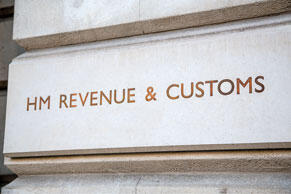2024 Autumn Budget: the highlights
Today we had the first Labour budget since 2010. What are the key takeaways?

Income and personal taxes. In keeping with pre-election promises, there will be no changes to the current bands or rates for income tax, primary Class 1 NI, Class 4 NI or dividends. An unexpected announcement is that the personal tax thresholds will unfreeze from April 2028. It was rumoured that the current rates would be locked in for a further two years. Instead they will now increase annually, likely in line with CPI.
For employees with company-provided cars, the percentage for zero emission and electric vehicles will increase by two percentage points per year in 2028 to 2029 and 2029 to 2030, rising to 9% in 2029 to 2030.
The domicile status will cease to apply for income tax and capital gains tax (CGT) as planned.
Business taxes. A leaked increase in the rate of secondary Class 1 NI was confirmed, with the rate increasing to 15% from April 2025. This was coupled with a reduction in the payment threshold to £5,000 (£96.15 per week). However, to ensure this doesn’t adversely impact smaller employers, the employment allowance will increase to £10,500 – more than double its current level.
Despite significant criticism, the previously-announced application of VAT to private school fees will go ahead. Further details should be available soon.
Capital taxes. The two-tiered system of CGT rates will be retained, but the rates are increased with immediate effect to 18% and 24%, aligning the rates applicable to assets generally with those for residential property. The trust rate increases to 24% accordingly. This applies to disposals made on or after 30 October 2024. The rate applying to carried interest will increase to 32% from April 2025, with further reform promised.
The rate that applies to business asset disposal relief and investors’ relief is increasing to 14% for disposals made on or after 6 April 2025 and from 14% to 18% for disposals made on or after 6 April 2026. The lifetime limit for investors’ relief reduces to £1 million (from £10 million) for disposals made on or after 30 October 2024.
Inherited pensions will be brought within inheritance tax from April 2025. Agricultural property relief and business property relief will be made far less generous by restricting the value that can qualify for relief at 100%. The existing 100% rates of relief will continue for the first £1 million of combined agricultural and business property. The rate of relief will be 50% thereafter, and in all circumstances for shares designated as “not listed” on the markets of recognised stock exchanges, such as AIM.
Other taxes. The stamp duty land tax surcharge for purchases of additional dwellings increases to 5% (from 3%) from 31 October 2024. This also increases the rate paid by companies etc to 17% for residential properties over £500,000.
Related Topics
-
MONTHLY FOCUS: RESEARCH AND DEVELOPMENT TAX CREDITS
Corporation tax incentives for expenditure on qualifying research and development (R&D) have been very generous historically, particularly for small and medium enterprises (SMEs). However, the rules are complex and have been subject to a multitude of changes in recent years. In this Monthly Focus we will look at the way relief for SMEs is accessed, especially with the 2024 introduction of a "merged" scheme.
-
IHT opportunities for non-domiciles from 2025
The 2024 Autumn Budget saw confirmation of the intricacies of inheritance tax (IHT) reform which will be based on residence from April 2025. Who are the winners and losers and what action should you be taking if you're affected??
-
Taking advantage of the employment allowance
If you’re worried about the cost to your business of the hike in employers’ NI from April 2025, the higher employment allowance (EA) might alleviate some of the pain. But will you qualify and are there any traps to avoid?






 This website uses both its own and third-party cookies to analyze our services and navigation on our website in order to improve its contents (analytical purposes: measure visits and sources of web traffic). The legal basis is the consent of the user, except in the case of basic cookies, which are essential to navigate this website.
This website uses both its own and third-party cookies to analyze our services and navigation on our website in order to improve its contents (analytical purposes: measure visits and sources of web traffic). The legal basis is the consent of the user, except in the case of basic cookies, which are essential to navigate this website.